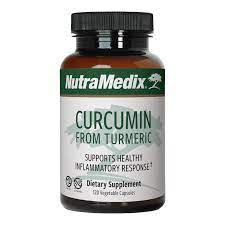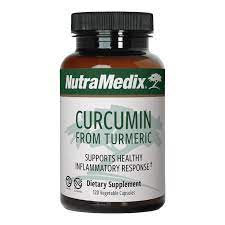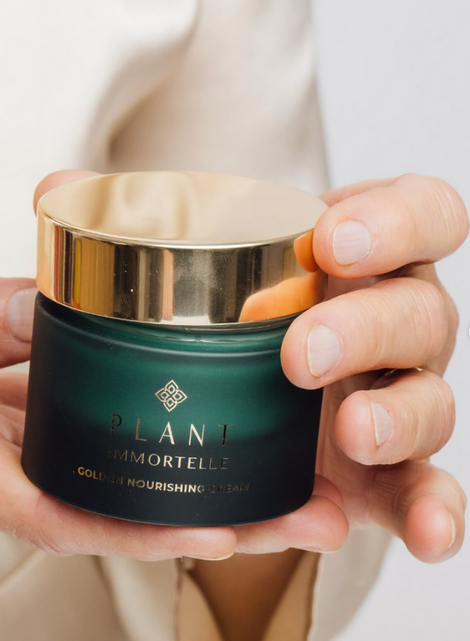Before you leave...
Take 10% off your first order
10% off
Enter the code below at checkout to get 10% off your first order
Call us at 77778586 or Live Chat 👇
Free shipping above €20


Couldn't load pickup availability
Free standard shipping on orders above €70 in Cyprus
Estimated to be delivered within 1 to 4 working days.
You may return most new, unopened items within 30 days of delivery for a full refund. We'll also pay the return shipping costs if the return is a result of our error (you received an incorrect or defective item, etc.).
You should expect to receive your refund within four weeks of giving your package to the return shipper, however, in many cases you will receive a refund more quickly. This time period includes the transit time for us to receive your return from the shipper (5 to 10 business days), the time it takes us to process your return once we receive it (3 to 5 business days), and the time it takes your bank to process our refund request (5 to 10 business days).
If you need to return an item, simply login to your account, view the order using the "Complete Orders" link under the My Account menu and click the Return Item(s) button. We'll notify you via e-mail of your refund once we've received and processed the returned item.
FOR RESOLVING PHYSICAL AND MENTAL EXHAUSTION, JOINT PAIN AND REPRODUCTIVE ISSUES ASSOCIATED WITH HEAVY METAL TOXICITY
TRIPLE HERBAL EXTRACT - This triple powered formula contains herbal extracts of Chlorella, Cilantro, and Pacific Cold Water Red Seaweed.*
Sealantro is a proprietary blend of the extracts of three plants — Chlorella vulgaris, Cilantro (Coriandrum sativum), and Seaweed (Chondracanthus chamissoi). This powerful combination of extracts detoxifies viral gastroenteritis and mobilizes and binds heavy metals, various radioactive substances, and other positively-charged toxins, especially in the gut. This "gut binding" aids the elimination of those substances from the body. Some specific metals eliminated by Sealantro include lead, arsenic, mercury, barium, cadmium, silver, nickel, aluminum, tin, titanium, radium, and indium. Sealantro is an integral component of the Cowden Support Program, developed by W. Lee Cowden, MD to address chronic inflammatory conditions such as Lyme disease.
ANTI-INFLAMMATORY
ANTI-DIABETIC
ANTIOXIDANT
ANTIBACTERIAL
ANTIFUNGAL
BLOOD PURIFIER
METAL DETOXIFIER
IMPROVES DIGESTION
BOOSTS IMMUNE SYSTEM
LOWERS CHOLESTEROL
PROPRIETARY WHOLE HERB EXTRACTION PROCESS - Highly bioavailable liquid for improved absorption. NutraMedix’s unique enhancement process optimizes the whole herb for a more powerful broad-spectrum concentration.*
FROM NATURE, NOT GMOS - Our products are sourced from nature’s richest botanical resources, primarily Peru and the Amazon Rainforest. All products are vegan, Non-GMO, and do not contain corn, gluten, yeast, soy, or dairy.*
FEEL THE DIFFERENCE - Put 40 drops in 4 oz. of water and wait one minute before drinking. Take every other day (30 min. before a meal) or as directed by your physician. Do not use if pregnant or nursing. Shake well before each use.*
OVER 25 YEARS OF NUTRACEUTICAL INNOVATION – Founded in 1993, NutraMedix supplies highly bioavailable nutritional supplements to health care professionals and consumers.
THE BUSINESS OF GIVING BACK – NutraMedix is dedicated to donating a minimum of 50% of profits to charitable organizations.
Mani, V., Parle, M., Ramasamy, K., & Abdul Majeed, A. B. (2011). Reversal of memory deficits by Coriandrum sativum leaves in mice. Journal of the Science of Food and Agriculture, 91(1), 186-192. Full Article
Patel, D. K., Desai, S. N., Gandhi, H. P., Devkar, R. V., & Ramachandran, A. V. (2012). Cardio protective effect of Coriandrum sativum L. on isoproterenol induced myocardial necrosis in rats. Food and chemical toxicology, 50(9), 3120-3125. Full Article
Chithra, V., & Leelamma, S. (2000). Coriandrum sativum—effect on lipid metabolism in 1, 2-dimethyl hydrazine induced colon cancer. Journal of Ethnopharmacology, 71(3), 457-463. Full Article
Gray, A. M., & Flatt, P. R. (1999). Insulin-releasing and insulin-like activity of the traditional anti-diabetic plant Coriandrum sativum (coriander). British Journal of Nutrition, 81(3), 203-209. Full Article
Eidi, M., Eidi, A., Saeidi, A., Molanaei, S., Sadeghipour, A., Bahar, M., & Bahar, K. (2009). Effect of coriander seed (Coriandrum sativum L.) ethanol extract on insulin release from pancreatic beta cells in streptozotocin‐induced diabetic rats. Phytotherapy Research: An International Journal Devoted to Pharmacological and Toxicological Evaluation of Natural Product Derivatives, 23(3), 404-406. Full Article
Wang, H. M., Pan, J. L., Chen, C. Y., Chiu, C. C., Yang, M. H., Chang, H. W., & Chang, J. S. (2010). Identification of anti-lung cancer extract from Chlorella vulgaris CC by antioxidant property using supercritical carbon dioxide extraction. Process Biochemistry, 45(12), 1865-1872. Full Article
Hasegawa, T., Noda, K., Kumamoto, S., Ando, Y., Yamada, A., & Yoshikai, Y. (2000). Chlorella vulgaris culture supernatant (CVS) reduces psychological stress-induced apoptosis in thymocytes of mice.International journal of immunopharmacology, 22(11), 877-885. Full Article
Mahendra, P., & Bisht, S. (2011). Anti-anxiety activity of Coriandrum sativum assessed using different experimental anxiety models. Indian Journal of Pharmacology, 43(5), 574. Full Article
Morimoto, T., Nagatsu, A., Murakami, N., Sakakibara, J., Tokuda, H., Nishino, H., & Iwashima, A. (1995). Anti-tumour-promoting glyceroglycolipids from the green alga, Chlorella vulgaris. Phytochemistry, 40(5), 1433-1437. Full Article
Konishi, F., Tanaka, K., Himeno, K., Taniguchi, K., & Nomoto, K. (1985). Antitumor effect induced by a hot water extract of Chlorella vulgaris (CE): resistance to Meth-A tumor growth mediated by CE-induced polymorphonuclear leukocytes. Cancer Immunology, Immunotherapy, 19(2), 73-78. Full Article
Silva, F., Ferreira, S., Queiroz, J. A., & Domingues, F. C. (2011). Coriander (Coriandrum sativum L.) essential oil: its antibacterial activity and mode of action evaluated by flow cytometry. Journal of Medical Microbiology, 60(10), 1479-1486. Full Article
Saeed, S., & Tariq, P. (2007). Antibacterial activities of Emblica officinalis and Coriandrum sativum against Gram negative urinary pathogens. Pakistan Journal of Pharmaceutical Sciences, 20(1), 32-35. Abstract
Lo Cantore, P., Iacobellis, N. S., De Marco, A., Capasso, F., & Senatore, F. (2004). Antibacterial activity of Coriandrum sativum L. and Foeniculum vulgare Miller var. vulgare (Miller) essential oils. Journal of Agricultural and Food Chemistry, 52(26), 7862-7866. Full Article
de Almeida Freires, I., Murata, R. M., Furletti, V. F., Sartoratto, A., de Alencar, S. M., Figueira, G. M., ... & Rosalen, P. L. (2014). Coriandrum sativum L.(coriander) essential oil: antifungal activity and mode of action on Candida spp., and molecular targets affected in human whole-genome expression. PLoS One, 9(6), e99086. Full Article
Soares, B. V., Morais, S. M., dos Santos Fontenelle, R. O., Queiroz, V. A., Vila-Nova, N. S., Pereira, C., ... & Castelo-Branco, D. S. (2012). Antifungal activity, toxicity and chemical composition of the essential oil of Coriandrum sativum L. fruits. Molecules, 17(7), 8439-8448. Full Article
Silva, F., Ferreira, S., Duarte, A., Mendonca, D. I., & Domingues, F. C. (2011). Antifungal activity of Coriandrum sativum essential oil, its mode of action against Candida species and potential synergism with amphotericin B. Phytomedicine, 19(1), 42-47. Full Article
Syed, S., Arasu, A., & Ponnuswamy, I. (2015). The uses of Chlorella vulgaris as antimicrobial agent and as a diet: the presence of bio-active compounds which caters the vitamins, minerals in general. Int J Biosci Biotechnol, 7(1), 185-190. Full Article
Rattanachaikunsopon, P., & Phumkhachorn, P. (2010). Potential of coriander (Coriandrum sativum) oil as a natural antimicrobial compound in controlling Campylobacter jejuni in raw meat. Bioscience, biotechnology, and biochemistry, 74(1), 31-35. Full Article
Begnami, A. F., Duarte, M. C. T., Furletti, V., & Rehder, V. L. G. (2010). Antimicrobial potential of Coriandrum sativum L. against different Candida species in vitro. Food Chemistry, 118(1), 74-77. Full Article
Matasyoh, J. C., Maiyo, Z. C., Ngure, R. M., & Chepkorir, R. (2009). Chemical composition and antimicrobial activity of the essential oil of Coriandrum sativum. Food Chemistry, 113(2), 526-529. Full Article
Saeed, S., & Tariq, P. (2007). Antimicrobial activities of Emblica officinalis and Coriandrum sativum against gram positive bacteria and Candida albicans.Pak. J. Bot, 39(3), 913-917. Full Article
Emamghoreishi, M., Khasaki, M., & Aazam, M. F. (2005). Coriandrum sativum: evaluation of its anxiolytic effect in the elevated plus-maze. Journal of Ethnopharmacology, 96(3), 365-370. Full Article
Takyar, M. B. T., Khajavi, S. H., & Safari, R. (2019). Evaluation of antioxidant properties of Chlorella vulgaris and Spirulina platensis and their application in order to extend the shelf life of rainbow trout (Oncorhynchus mykiss) fillets during refrigerated storage. LWT, 100, 244-249. Full Article
Habashy, N. H., Serie, M. M. A., Attia, W. E., & Abdelgaleil, S. A. (2018). Chemical characterization, antioxidant and anti-inflammatory properties of Greek Thymus vulgaris extracts and their possible synergism with Egyptian Chlorella vulgaris. Journal of Functional Foods, 40, 317-328. Full Article
González-Marrugo, L. B., Granados-Llamas, E. A., Granados-Conde, C., Tejada-Tovar, C. N., & Ortega-Toro, R. (2018). Extraction and Evaluation of the Antioxidant Properties of Coriander (Coriandrum sativum) Seed Essential Oil. Full Article
Msaada, K., Jemia, M. B., Salem, N., Bachrouch, O., Sriti, J., Tammar, S., ... & Marzouk, B. (2017). Antioxidant activity of methanolic extracts from three coriander (Coriandrum sativum L.) fruit varieties. Arabian Journal of Chemistry, 10, S3176-S3183. Full Article
Baghdadi, H. H., El-Demerdash, F. M., Radwan, E. H., & Hussein, S. (2016). The protective effect of Coriandrum sativum L. oil against liver toxicity induced by ibuprofen in rats. J Biosci Appl Res, 2, 197-202. Full Article
Zeković, Z., Vidović, S., Vladić, J., Radosavljević, R., Cvejin, A., Elgndi, M. A., & Pavlić, B. (2014). Optimization of subcritical water extraction of antioxidants from Coriandrum sativum seeds by response surface methodology. The Journal of Supercritical Fluids, 95, 560-566. Full Article
Tang, E. L., Rajarajeswaran, J., Fung, S. Y., & Kanthimathi, M. S. (2013). Antioxidant activity of Coriandrum sativum and protection against DNA damage and cancer cell migration. BMC complementary and alternative medicine, 13(1), 347. Full Article
Park, G., Kim, H. G., Kim, Y. O., Park, S. H., Kim, S. Y., & Oh, M. S. (2012). Coriandrum sativum L. protects human keratinocytes from oxidative stress by regulating oxidative defense systems. Skin pharmacology and physiology, 25(2), 93-99. Full Article
Divya, P., Puthusseri, B., & Neelwarne, B. (2012). Carotenoid content, its stability during drying and the antioxidant activity of commercial coriander (Coriandrum sativum L.) varieties. Food Research International, 45(1), 342-350. Full Article
Darughe, F., Barzegar, M., & Sahari, M. A. (2012). Antioxidant and antifungal activity of Coriander (Coriandrum sativum L.) essential oil in cake. International Food Research Journal, 19(3), 1253-1260. Full Article
Sreelatha, S., Padma, P. R., & Umadevi, M. (2009). Protective effects of Coriandrum sativum extracts on carbon tetrachloride-induced hepatotoxicity in rats. Food and Chemical Toxicology, 47(4), 702-708. Full Article
Vijayavel, K., Anbuselvam, C., & Balasubramanian, M. P. (2007). Antioxidant effect of the marine algae Chlorella vulgaris against naphthalene-induced oxidative stress in the albino rats. Molecular and cellular biochemistry, 303(1-2), 39-44. Full Article
Deepa, B., & Anuradha, C. V. (2011). Antioxidant potential of Coriandrum sativum L. seed extract. Indian Journal of Experimental Biology. Full Article
Wong, P. Y., & Kitts, D. D. (2006). Studies on the dual antioxidant and antibacterial properties of parsley (Petroselinum crispum) and cilantro (Coriandrum sativum) extracts. Food Chemistry, 97(3), 505-515. Full Article
Guerra, N. B., de Almeida Melo, E., & Mancini Filho, J. (2005). Antioxidant compounds from coriander (Coriandrum sativum L.) etheric extract. Journal of Food Composition and Analysis, 18(2-3), 193-199. Full Article
de Almeida Melo, E., Mancini Filho, J., & Guerra, N. B. (2005). Characterization of antioxidant compounds in aqueous coriander extract (Coriandrum sativum L.).LWT-Food Science and Technology, 38(1), 15-19. Full Article
Hashim, M. S., Lincy, S., Remya, V., Teena, M., & Anila, L. (2005). Effect of polyphenolic compounds from Coriandrum sativum on H2O2-induced oxidative stress in human lymphocytes. Food Chemistry, 92(4), 653-660. Full Article
de Almeida Melo, E., Bion, F. M., Filho, J. M., & Guerra, N. B. (2003). In vivo antioxidant effect of aqueous and etheric coriander (Coriandrum sativum L.) extracts. European Journal of Lipid Science and Technology, 105(9), 483-487. Full Article
Ramadan, M. F., Kroh, L. W., & Mörsel, J. T. (2003). Radical scavenging activity of black cumin (Nigella sativa L.), coriander (Coriandrum sativum L.), and niger (Guizotia abyssinica Cass.) crude seed oils and oil fractions. Journal of Agricultural and Food Chemistry, 51(24), 6961-6969. Full Article
Chithra, V., & Leelamma, S. (1999). Coriandrum sativum changes the levels of lipid peroxides and activity of antioxidant enzymes in experimental animals. Indian Journal of Biochemistry & Biophysics. Full Article
Eguale, T., Tilahun, G., Debella, A., Feleke, A., & Makonnen, E. (2007). In vitro and in vivo anthelmintic activity of crude extracts of Coriandrum sativum against Haemonchus contortus. Journal of Ethnopharmacology, 110(3), 428-433. Full Article
Sonika, G., Manubala, R., & Deepak, J. (2010). Comparative studies on anti-inflammatory activity of Coriandrum Sativum, Datura stramonium and Azadirachta Indica. Asian J Exp Biol Sci, 1(1), 151-154. Full Article
Queiroz, M. L., Rodrigues, A. P., Bincoletto, C., Figueirêdo, C. A., & Malacrida, S. (2003). Protective effects of Chlorella vulgaris in lead-exposed mice infected with Listeria monocytogenes. International immunopharmacology, 3(6), 889-900. Full Article
Dhanapakiam, P., Joseph, J. M., Ramaswamy, V. K., Moorthi, M., & Kumar, A. S. (2007). The cholesterol-lowering property of coriander seeds (Coriandrum sativum): mechanism of action. Journal of Environmental Biology, 29(1), 53. Full Article
Pandey, A., Bigoniya, P., Raj, V., & Patel, K. K. (2011). Pharmacological screening of Coriandrum sativum Linn. for hepatoprotective activity. Journal of Pharmacy and Bioallied sciences, 3(3), 435. Full Article
Morris, H. J., Carrillo, O., Almarales, A., Bermúdez, R. C., Lebeque, Y., Fontaine, R., ... & Beltrán, Y. (2007). Immunostimulant activity of an enzymatic protein hydrolysate from green microalga Chlorella vulgaris on undernourished mice. Enzyme and Microbial Technology, 40(3), 456-460. Full Article
Sathishkumar, P., Preethi, J., Vijayan, R., Yusoff, A. R. M., Ameen, F., Suresh, S., ... & Palvannan, T. (2016). Anti-acne, anti-dandruff and anti-breast cancer efficacy of green synthesised silver nanoparticles using Coriandrum sativum leaf extract. Journal of Photochemistry and Photobiology B: Biology, 163, 69-76. Full Article
Rajeshwari, U., & Andallu, B. (2011). Medicinal benefits of coriander (Coriandrum sativum L). SpatulaDD, 1(1), 51-58. Full Article
Mizoguchi, T., Takehara, I., Masuzawa, T., Saito, T., & Naoki, Y. (2008). Nutrigenomic studies of effects of Chlorella on subjects with high-risk factors for lifestyle-related disease. Journal of Medicinal Food, 11(3), 395-404. Full Article
Singh, G., Maurya, S., De Lampasona, M. P., & Catalan, C. A. (2006). Studies on essential oils, Part 41. Chemical composition, antifungal, antioxidant and sprout suppressant activities of coriander (Coriandrum sativum) essential oil and its oleoresin.Flavour and fragrance journal, 21(3), 472-479. Full Article
Cowden Support Program for Lyme: Observational Study – Dublin, Ireland – June, 2012 Armin Schwarzbach, MD PhD Full Video
"For over four years, I was exhausted and I couldn't figure out why. The doctor finally told me I had candida overgrowth. I took some products to help, but I still was tired. My sister gave me a bottle of Sealantro, and my energy came back and I feel like my old self again." -I.N.
40 drops every other day 30 minutes before a meal; use in 4 oz. of water.
While Green Life strives to ensure the accuracy of its product images and information, some manufacturing changes to packaging and/or ingredients may be pending update on our website. We recommend that you read labels, warnings and directions of all products before use and not rely solely on the information provided by Green Life.
Important Note: Delivery times may extend during holidays.
You may return most new, unopened items within 3-5 days of delivery for a full refund. We'll also pay the return shipping costs if the return is a result of our error (you received an incorrect or defective item, etc.).
You should expect to receive your refund within four weeks of giving your package to the return shipper. In many cases, you will receive a refund more quickly. This time period includes:
If you need to return an item, simply log in to your account, view the order under "Complete Orders" and click the "Return Item(s)" button. We'll notify you via e-mail once we've received and processed the returned item.
Thanks for subscribing!
This email has been registered!
Before making a purchase, please make sure to check out our Shipping & Delivery Policy.
If you have any questions about these terms, please contact us here .


Take 10% off your first order
Enter the code below at checkout to get 10% off your first order